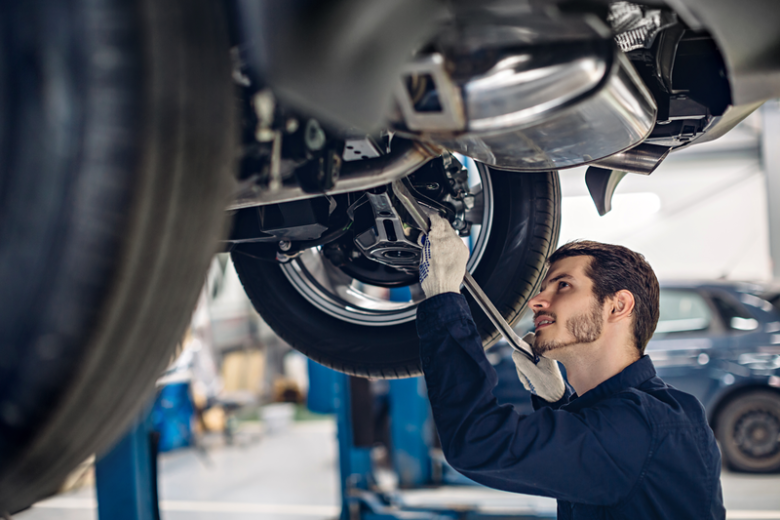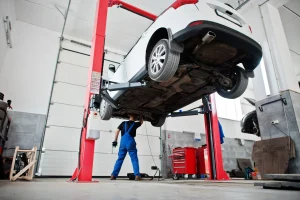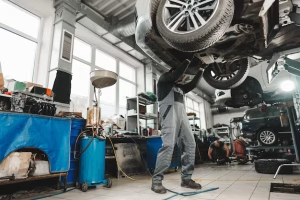DIY car repair is a powerful way to save money and develop valuable skills that can serve you for a lifetime. Whether you’re dealing with routine maintenance or minor issues, handling these tasks yourself not only cuts down on repair costs but also builds your confidence in managing your vehicle. With the right tools, knowledge, and practice, you can master the essentials of car repair and enjoy the satisfaction of solving problems on your own.
The Financial Benefits of DIY Car Repair
One of the most compelling reasons to take on DIY car repair is the financial savings. Professional mechanics charge a premium for labor, and even straightforward repairs can result in significant expenses. By learning to fix your car at home, you eliminate those costs, leaving only the price of replacement parts and tools. Over time, these savings can amount to hundreds or even thousands of dollars, depending on the frequency and complexity of the repairs. Additionally, purchasing tools is a one-time investment that will pay off as you continue to use them for various tasks.
Gaining Independence Through Car Repairs
Beyond saving money, DIY car repair empowers you to take control of your vehicle’s maintenance. Instead of relying on others to identify and fix problems, you can learn to diagnose issues yourself. Tools like an OBD-II scanner, which reads error codes from your car’s onboard computer, make it easier than ever to pinpoint problems. Once you identify the issue, you can refer to your car’s manual or trusted online resources for guidance on how to fix it. This process not only enhances your knowledge of car mechanics but also ensures you’re not overpaying for unnecessary services.
Preparing for DIY Car Repairs
Preparation is key to successful DIY car repair. Having the right tools and workspace can make all the difference. A basic toolkit should include wrenches, screwdrivers, pliers, a socket set, and a jack with jack stands. Other useful items include a torque wrench, oil filter wrench, and multimeter. Investing in quality tools ensures durability and precision, making your repair work more efficient. It’s also important to have a clean, well-lit space to work in, with enough room to safely maneuver around your vehicle.
Prioritizing Safety While Repairing Your Car
Safety should always be a top priority when working on your car. While DIY repairs are often straightforward, they involve handling heavy parts, chemicals, and electrical components that can pose risks if not managed properly. Always use jack stands to secure your vehicle after lifting it, and never work under a car supported solely by a jack. Wearing gloves and safety glasses can protect you from sharp edges, debris, and harmful substances. Make sure to dispose of old fluids, batteries, and other materials responsibly, following local regulations.
Learning to Change Your Car’s Oil
Changing your car’s oil is one of the most common and beginner-friendly DIY tasks. Regular oil changes are vital for maintaining your engine’s health and efficiency. To get started, you’ll need an oil filter wrench, a drain pan, and a funnel. Drain the old oil by removing the oil plug, replace the oil filter, and refill with fresh oil. This simple process can be completed in under an hour and will save you the cost of visiting a mechanic.
Replacing the Air Filter
Replacing your car’s air filter is another straightforward task that can significantly improve engine performance. A dirty air filter restricts airflow, reducing fuel efficiency and power. Fortunately, most air filters are easily accessible under the hood and require no special tools for replacement. Simply remove the old filter, clean the housing if necessary, and insert the new filter. This quick fix keeps your engine running smoothly and ensures optimal fuel consumption.
Maintaining Your Brakes
Brake maintenance is a slightly more advanced but essential skill to master. Replacing brake pads is a common task that ensures your vehicle’s braking system remains safe and reliable. The process involves removing the wheel, unbolting the brake caliper, and replacing the worn pads with new ones. While it may seem intimidating at first, following detailed instructions and taking your time can make the job manageable, even for beginners. Properly functioning brakes are critical for your safety, making this repair a valuable skill to learn.
Caring for Your Tires
Tire maintenance is another area where DIY repairs shine. Knowing how to change a flat tire is an essential skill that every driver should master. Additionally, regularly checking tire pressure and tread depth can help you avoid premature wear and improve fuel efficiency. With a tire pressure gauge and a basic understanding of tire care, you can extend the lifespan of your tires and ensure a smoother ride.
Handling Battery Maintenance
Battery maintenance is a simple yet important aspect of car care. If your car won’t start or struggles to turn over, the battery may be the culprit. Testing the battery with a multimeter can help determine if it needs to be replaced. If so, the process involves disconnecting the terminals, removing the old battery, and securing the new one in place. Regularly cleaning the battery terminals can also prevent corrosion and ensure a strong electrical connection.
Tackling Minor Electrical Repairs
For those looking to further expand their DIY repair skills, addressing minor electrical issues can be a rewarding challenge. Replacing a blown fuse, fixing faulty lightbulbs, or even installing a new stereo system are tasks that require minimal tools and provide significant satisfaction. Learning to navigate your car’s electrical systems opens up even more opportunities for cost-saving repairs.
Knowing Your Limits in Car Repairs
While mastering DIY car repair has many advantages, it’s important to know your limits. Complex tasks such as engine overhauls or transmission repairs require advanced knowledge and specialized equipment. Attempting these repairs without the necessary expertise can lead to costly mistakes or even make the problem worse. Recognizing when to consult a professional ensures your car receives the care it needs while protecting your investment.
Conclusion
In conclusion, mastering DIY car repair is an invaluable skill that offers both financial and personal rewards. By handling basic maintenance and minor repairs yourself, you can save money, gain confidence, and deepen your understanding of your vehicle. With the right tools, preparation, and dedication to learning, you’ll be equipped to tackle a wide range of car issues. Over time, you’ll not only enjoy the benefits of a well-maintained vehicle but also the pride that comes with solving problems and building your skills.



